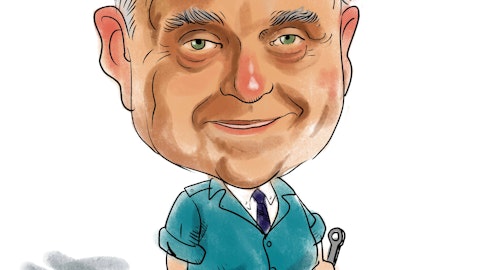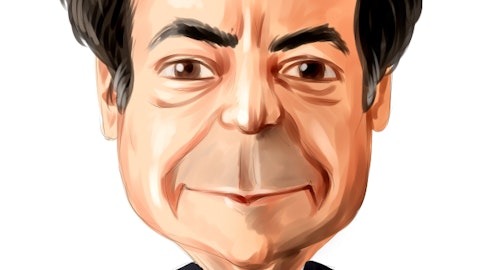The stock selection process is generally quite cumbersome and expensive on some occasions, especially when one does not have the necessary knowledge base and skills to pursue an appropriate analysis. Choosing the right stock to invest in might be harder than it sounds, so some individual investors tend to focus on hedge funds’ 13Fs and other filings submitted with the SEC to identify potential winners. These investment vehicles are widely-known for their strong stock picking abilities, which is one of the primary reasons smart money investors are so highly scrutinized. Of course, hedge fund managers may make the wrong moves at times, but one does not necessarily have to follow each move taken by these managers. Instead, tracking 13G and 13D filings can serve as part of a broader stock picking process. Hence, this article will discuss two activist filings and one 13G filing submitted by three widely-known hedge fund firms tracked by Insider Monkey.
Let’s first take a step back and analyze how tracking hedge funds can help an everyday investor. Through our research we discovered that a portfolio of the 15 most popular small-cap picks of hedge funds beat the S&P 500 Total Return Index by nearly a percentage point per month on average between 1999 and 2012. On the other hand the most popular large-cap picks of hedge funds underperformed the same index by seven basis points per month during the same period. This is likely a surprise to many investors, who think of small-caps as risky, unpredictable stocks and put more faith (and money) in large-cap stocks. In forward tests since August 2012 these top small-cap stocks beat the market by an impressive 53 percentage points, returning 102% (read the details here). Follow the smart money into only their best investment ideas all while avoiding their high fees.
According to a freshly-amended 13D filed with the SEC, Bill Ackman’s Pershing Square Capital Management currently owns 34.12 million shares of the struggling Valeant Pharmaceuticals Intl Inc. (NYSE:VRX), accounting for 9.9% of the company’s outstanding common stock. This denotes an increase of 14.64 million shares from the position revealed through the latest round of 13F filings. This move comes amid a turbulent period for the specialty pharmaceutical and medical device company, which has seen its shares drop by over 60% since mid-September. In a conference call that took place at the end of October, Ackman said “The biggest regret I have with Valeant is that we’re not in a position to buy more”. However, it appears that the billionaire activist investor did indeed manage to find more capital to buy additional Valeant shares. The recent public scrutiny of Valeant’s pricing and its distribution practices, along with the public statements made by a short-seller regarding Valeant’s business practices and financial accounting, have put significant weight on the stock lately. Nevertheless, the stock is trading at a very attractive forward price-to-earnings ratio of 5.95, which compares with a ratio of 17.48 for the S&P 500 Index. Therefore, Valeant Pharmaceuticals Intl Inc. (NYSE:VRX) may represent a great buying opportunity should analysts’ earnings estimates be accurate and the negative publicity fades away. It is worth pointing out that the shares of Valeant have advanced by over 3% in today’s pre-market session, which might suggest that market participants believe in Ackman’s stance on the company’s potential. Even so, it remains to be seen to what extend Valeant’s ongoing issues will impact its future potential.
Follow Bill Ackman's Pershing Square
The specialty pharmaceutical company lost some of its charm among the hedge funds monitored by our team during the third quarter, as the number of smart money investors with stakes in the company declined to 88 from 98 quarter-over-quarter. These hedge fund investors amassed slightly more than 29% of Valeant’s common stock as of September 30, while the value of their stakes shrank to $17.73 billion from $22.02 billion quarter-over-quarter, owning to the sharp decline in the stock. Jeffrey Ubben’s ValueAct Capital held its stake in Valeant Pharmaceuticals Intl Inc. (NYSE:VRX) unchanged during the third quarter at 14.99 million shares.
Follow Bausch Health Companies Inc. (NYSE:BHC)
Follow Bausch Health Companies Inc. (NYSE:BHC)
Receive real-time insider trading and news alerts
The next page of the article discusses Carl Icahn’s new activist target and Stephen Mandel’s position in Dollar Tree Inc. (NASDAQ:DLTR).
In a separate 13D filing, reputable activist investor Carl Icahn of Icahn Capital LP reported owning 72.22 million shares of Xerox Corp (NYSE:XRX), which include shares underlying forward contracts. The freshly-acquired position represents roughly 7.13% of the company’s outstanding common stock. Icahn and his team also expressed their belief that the shares of Xerox are undervalued, and also stated their intentions to have discussions with the company’s management and Board of Directors regarding “improving operational performance and pursuing strategic alternatives, as well as the possibility of board representation”. On October 26, Xerox announced that its Board had previously authorized a review of the company’s business portfolio and capital allocation options in an attempt to create shareholder value. It appears that Icahn has already formulated some steps of his own as to how to unlock shareholder value at Xerox, given his bullish purchase. Shares of Xerox Corp (NYSE:XRX) are up slightly in morning trading, having retreated from their initial high of about 2%.
Follow Carl C. Icahn's Icahn Capital LP
Xerox received more attention from the hedge funds observed by the Insider Monkey team in the third quarter, with the number of top money managers invested in the company increasing to 33 from 30 during the three-month period. These smart money investors owned 5.30% of Xerox’s common stock on September 30, while the value of their stakes grew to $547.90 million from $405.44 million quarter-over-quarter. Brian Jackelow’s SAB Capital Management acquired a 4.49 million-share stake in Xerox Corp (NYSE:XRX) during the September quarter.
Follow Xerox Corp (NASDAQ:XRX)
Follow Xerox Corp (NASDAQ:XRX)
Receive real-time insider trading and news alerts
Moving on to the 13G filing, Stephen Mandel’s Lone Pine Capital disclosed a passive ownership stake of 13.19 million shares in Dollar Tree Inc. (NASDAQ:DLTR), which accounts for 5.6% of its outstanding shares. This compares with the 5.14 million-share position revealed via the fund’s 13F filing for the September quarter. The leading operator of retail discount stores has seen its shares decline by slightly more than 1% in 2015, while several valuation metrics do not suggest significant upside for the stock. On Tuesday, Dollar Tree released its third quarter earnings report, posting consolidated net sales of $4.95 billion, which were significantly up from the $2.10 billion figure reported for the same period of last year. Its adjusted cash earnings per share also increased to $1.33 from $1.02. The company’s future performance is mainly dependent on its ability to open and add new stores through M&A activity, and squeeze maximum revenues from its existing and newly-acquired stores.
Follow Stephen Frank Mandel Jr.'s Lone Pine Capital
Dollar Tree Inc. (NASDAQ:DLTR) lost some of its appeal within the hedge fund industry during the September quarter, as the number of top money managers with positions in the company declined by eight to 52. It should be noted that the smart money investors tracked by our team still owned nearly 21% of the company’s shares on September 30. Peter Adam Hochfelder’s Brahman Capital acquired a 2.97 million-share stake in Dollar Tree Inc. (NASDAQ:DLTR) during the latest quarter.
Follow Dollar Tree Inc. (NASDAQ:DLTR)
Follow Dollar Tree Inc. (NASDAQ:DLTR)
Receive real-time insider trading and news alerts
Disclosure: None





